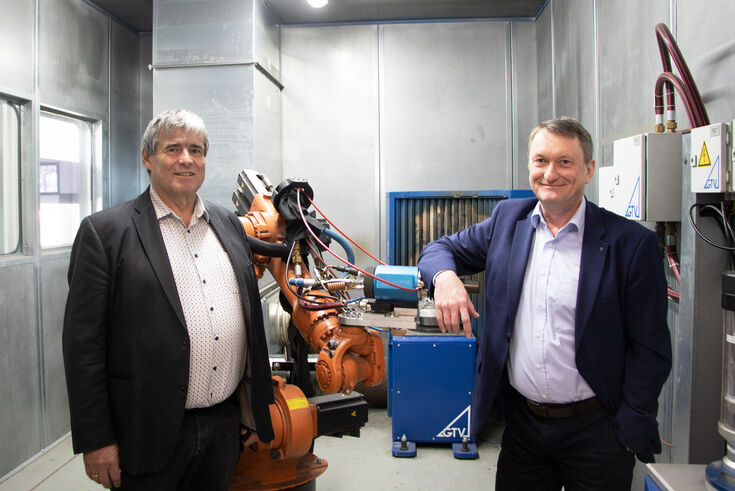The competence centre was founded by Professor Dr. Johannes Wilden after his appointment to the HSNR in 2011. The initial focus of the work was on building up the coating technology infrastructure and on materials and Surface Engineering. Following Professor Wilden's retirement, Professor Dr. Markus Lake has now taken over the STAR competence centre. He teaches Production Technology and Coating Processes and has headed the Surface Engineering Laboratory at the Faculty of Mechanical and Process Engineering since 2011.
Both the old and the new management agreed that the topic of sustainability should be given greater focus. Therefore, a new concept was developed, which is based on the sustainability goals of the 2030 Agenda of the global community, the Sustainable Development Goals.
Together, six goals were identified to which the competence centre can contribute. These goals can only succeed with interdisciplinary and multidisciplinary cooperation. For this purpose, milestones for research activities were developed, the foundation courses of which are concrete research projects. One goal is the research field of Reactive Multimaterial Systems (RMS), which are an innovative technology for energy storage. In the company's own Surface Engineering laboratory, RMS thin-film systems are produced in such a way that they are more effective and efficient and can ultimately be manufactured in a way that conserves resources.
Surface Engineering also provides important impetus for the topic of sustainability. In the 2030 Agenda, two of the goals are called "Clean water and sanitation" and "Climate protection measures." "Catalyst systems are being developed that use an oxidation process to remove micro-pollutants from wastewater and treat exhaust air to meet air pollution control requirements," says Professor Dr. Markus Lake, head of the Surface Engineering competence centre at the Hochschule Niederrhein.
The STAR competence centre sees itself as a cooperation partner for industry, especially for medium-sized companies in the region. Students write study projects and theses on practice-relevant issues in order to find innovative solutions. Since Surface Engineering is relevant to many areas of daily life, companies come from a wide variety of industries. In the past, the competence centre has already collaborated with companies from the transport sector, energy technology and water treatment.


















